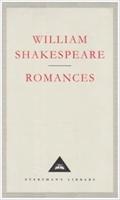Publisher's Synopsis
Set in the rugged and mystical landscapes of ancient Scandinavia, The Odin's Ordination of King Ragnar follows the legendary rise of Ragnar, a warrior born under a prophecy, destined to unify the fractured Norse lands. From the moment Odin's signs appear in the heavens, Ragnar is marked for greatness, but the road to the throne is paved with betrayal, bloodshed, and divine intervention. As clans clash and kings fall, Ragnar steps into the chaos with unmatched courage and a vision for a united kingdom.
The story delves into Ragnar's early struggles as a regional chieftain fighting to preserve his land and honor. Betrayed by his once-loyal brother-in-arms, King Harald, Ragnar is forced into exile, where he undergoes a journey of spiritual awakening and warrior rebirth. With the aid of Lagertha, a fierce shield-maiden and his eternal companion, Ragnar forges alliances and gathers an army that echoes the will of the gods. His connection with Odin deepens, guiding his actions through visions, omens, and dreams shaped by Norse mysticism.
As Ragnar's influence spreads across the fjords and icy mountains, resistance grows from rival kings, warlords, and traitors who fear his power. The novel paints epic battles with vivid brutality, balanced by moments of reflection, prophecy, and inner conflict. Ragnar is not merely a warrior; he is a man struggling with the burden of destiny and the sacrifice it demands. Each battle he fights inches him closer to his divine purpose-but also further from the peace he craves.
The climax unfolds in a dramatic confrontation with Harald on a storm-torn battlefield, where Ragnar must decide not only the fate of a king but the spirit of a nation. The decision he makes-one of unexpected mercy-demonstrates the depth of his transformation from warrior to ruler. With the gods watching and the world waiting, Ragnar claims his rightful place not through bloodlust but through wisdom, forever changing the course of Norse history.
In its conclusion, The Odin's Ordination becomes more than a saga of war; it is a tale of leadership, legacy, and spiritual destiny. It captures the soul of Viking mythology while grounding its hero in deeply human choices. Ragnar emerges not only as king of Norway and all Scandinavia but as a symbol of what it means to be chosen-not just by the gods, but by one's own people.









